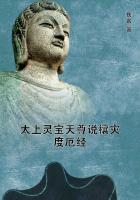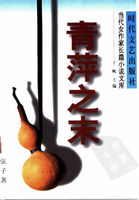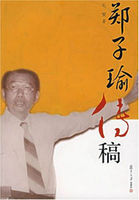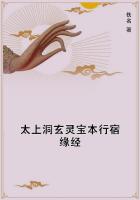In the new financial scheme, so many centimes, added to each franc of direct tax, form the principal resource of the department and commune, and it is through this extra charge that each taxpayer pays his quota of local expenditure. Now, there is no surcharge on the personal tax, no additional centimes. Under this heading, the laborer without any property or income, the workman who lives in lodgings, on his wages, and from day to day, contributes nothing to the expenses of his commune or department. In vain do "additional centimes" pour down on other branches of direct taxation; they are not grafted on this one, and do not suck away the substance of the poor.[9] - There is the same regard for the half poor, in relation to the artisan who furnishes his own room, but who lodges in an upper story, and in relation to the peasant whose hovel or cottage has but one door and one window.[10] Their rate of taxation on doors and windows is very low, purposely reduced, kept below one franc a year, while the rate of their personal tax is scarcely higher. "Additional centimes" may be imposed on so small a principal and be multiplied in vain, never will they reach more than an insignificant amount.-Not only are the destitute relieved of both principal and "additional centimes," the verified poor, those who are registered and are helped, or should be, that is to say 2,470,000 persons;[11] but, again, others, by hundreds of thousands, whom the municipal council judges incapable of paying. -Even when people possess but a small piece of land, they are also relieved of the land tax and of the numerous additional centimes which increase it. Such is the case with those who are infirm or burdened with a family. The exchequer, so as not to convert them into beggars and vagabonds, avoids expropriation, selling out their concrete hovel, vegetable garden, and small field of potatoes or cabbages; it gives them receipts gratis, or, at least, refrains from prosecuting them.[12] In this way the poor peasant, although a land-owner, again exempts himself, or is exempted from his local indebtedness. In truth, he pays nothing, or nearly nothing, otherwise than by prestations (payments) in money or in kind; that is to say, by three days' work on the district roads, which, if he pays in kind, are not worth more than 50 sous.[13] Add to this his portion, very small and often null, of the additional centimes on the tax on doors and windows, on the personal tax, and on the tax on real estate, in all 4 or 5 francs a year. Such is the amount by which the poor or half-poor taxpayer in the villages liberates himself toward his department and commune. -In the towns, he apparently pays more, owing to the octroi. But, at first, there are only 1525 communes out of 36,000 in which the octroi[14] has been established; while in the beginning, under the Directory and Consulate, it was revived only on his account, for his benefit, in behalf of public charity, to defray the expenses of asylums and hospitals ruined by revolutionary confiscation. It was then "an octroi for charity," in fact as well as in name, like the surplus tax on theater seats and tickets, established at the same time and for the same purpose; it still to-day preserves the stamp of its first institution. Bread, the indispensable provision for the poor, is not subjected to the octroi nor the materials for making it, either grain or flour, nor milk, fruits, vegetables, or codfish, while there is only a light tax on butcher's meat. Even on beverages, where the octroi is heavier, it remains, like all indirect taxes, nearly proportional and semi-optional. In effect, it is simply an increase of the tax on beverages, so many additional centimes per franc on the sum of indirect taxation, as warrantable as the impost itself, as tolerable, and for the same motives.[15] For the greater the sobriety of the taxpayer, the less is he affected by this tax. At Paris, where the increase is excessive, and adds to the 6 centimes paid to the state, on each quart of wine, 12 centimes paid to the city; if he drinks but one quart a day, he pays, under this heading, into the city treasury 43 francs 80 centimes per annum: but, as compensation for this, he is free of personal tax of 11 3/4 %, which this adds to the amount of each rental of the 11 3/4 %, whereby this would have added to his rent, and therefore 47 francs per annum as a rent of 400francs. Thus what he has paid with one hand he gets back with the other. Now, at Paris, all rentals under 400 francs[16] are thus free of any personal tax; all rentals between 400 and 1000 francs are more or less free, and, in the other octroi towns, an analogous discharge reimburses to the small taxpayers a portion more or less great of the sum they pay to the octroi. - Accordingly, in the towns as in the country, they are favored at one time through fiscal relief and at another through administrative favor, now through compulsory deduction and now through total or partial reimbursement. Always, and very wisely, the legislator apportions the burden according to the strength of the shoulders; he relieves them as much as he can, at first, of the general tax, and next, which is still better, of the local tax. Hence, in local expenditure, their quota diminishes out of all proportion and is reduced to the minimum. Nevertheless, their quota of local benefit remains full and entire; at this insignificant price they enjoy the public highways and profit by all the precautions taken against physical ills; each profits by this personally, equally with any millionaire. Each personally receives as much in the great dividend of security, health, and convenience, in the fruit of the vast works of utility and enjoyment due to improved communications, which preserve health, assist traffic, and beautify the locality, and without which, in town as well as in the country, life would be impossible or intolerable.
同类推荐
热门推荐
婚令如山,契约娇妻请入局
沈木棉和许熙北是青梅竹马,可她从来没有想过他会坑她,一本鲜红的结婚证将二人捆绑在了一起。婚后的每一天都被男神宠上了天,白日里她是光芒万丈的许太太,黑夜里就被男神各种索取报酬。“沈秘书,进来一下。”“……”半天没人回应。“总裁,总裁夫人已经出国旅游,让我送给你4个字。”首席秘书严肃回答,不敢抬头看正一脸阴沉的总裁。“说。”首席秘书突然很尴尬:“衣冠禽兽。”总裁脸不红心不跳地反思,咳咳,前几日似乎太过“用力”了!某日旅游玩的正欢快的某人,手腕突然被人抓住,吓了一跳,回头就看到一张人神共愤的脸。”--情节虚构,请勿模仿















